For implementation of UNSDCF 2022–2026 in 2024, the 19 UN agencies in Albania had a budget available of $76 million (Figure 1), with core resources of $5.7 million (7%) and mobilised resources of $70.8 million (93%). The utilisation rate by the end of 2024 was 89 per cent: i.e., the UN system delivered interventions worth $68 million, with the balance carried over into 2025. The largest financial portfolio continued to be that of Human Capital Development, followed by, in decreasing order of portfolio size, Green Growth, Innovation and Climate Change; Governance, Rule of Law and Human Rights; and Gender-Responsive Governance.
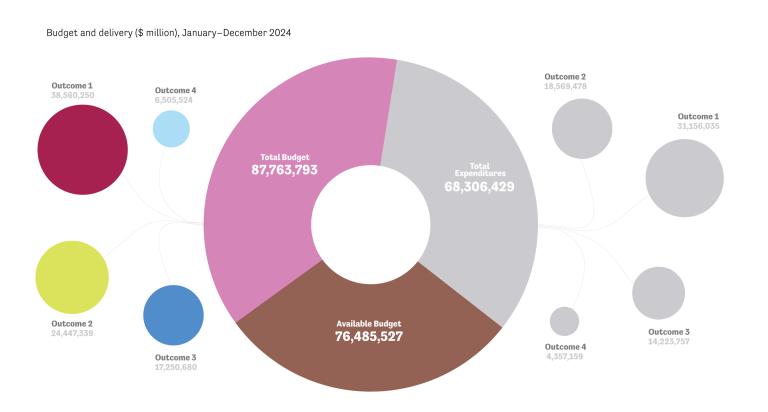
At the output level, delivery was largest for outputs 1.2 Education, and 2.2 Sustainable and resilient economic growth and transition, followed closely by 3.6 Migration and asylum (Figure 2).
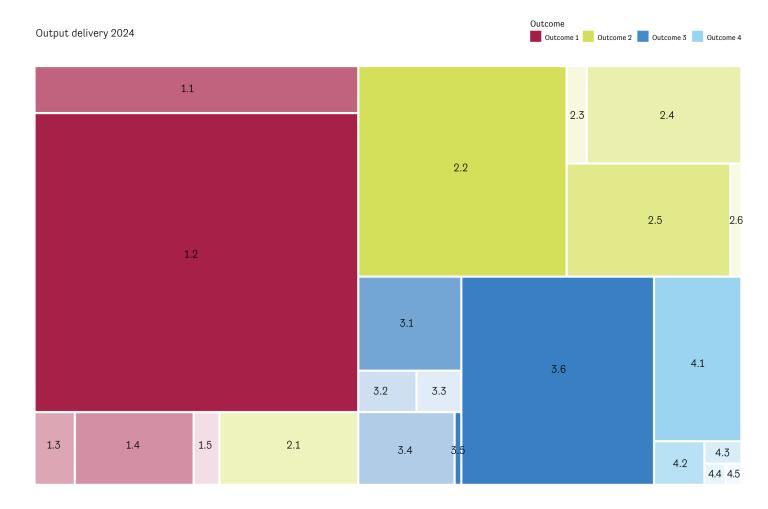
UNDP remains the UN agency with the largest portfolio of funds delivered (49%; Figure 3) and activities implemented across all four strategic areas in 2024, followed by UNOPS and UNICEF (14% each).
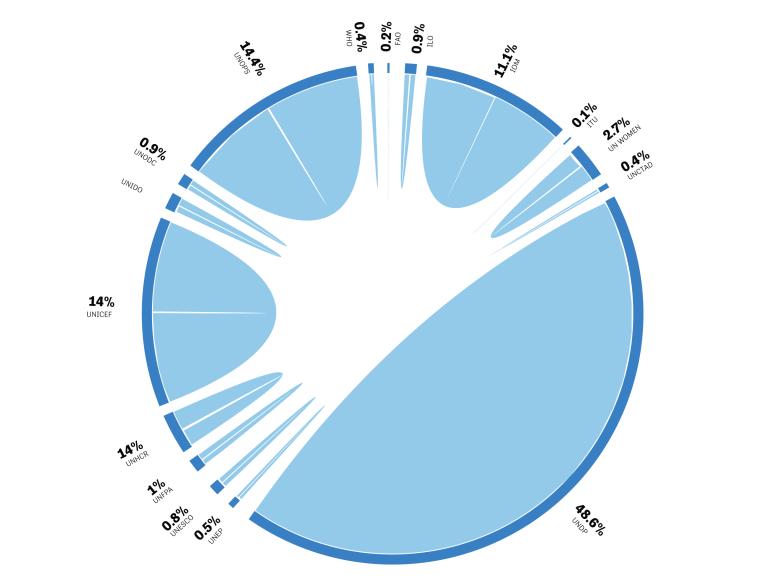
The non-core budget in 2024 consisted of contributions to the ASDG-AF and bilateral contributions mobilised through agreements with individual UN agencies at the country, regional and global levels.
ASDG-AF has been instrumental in enhancing the strategic alignment and concerted UN efforts towards SDG acceleration. Both phase I and phase II Funds have played a crucial role since 2019, especially in supporting post-earthquake recovery initiatives in areas such as education, social protection, gender, child protection, economic recovery and resilience, agriculture, DRR and community infrastructure, generating increased interest from partners as a cost-effective vehicle.
From 2007 to 2024, overall contributions from 16 partners to ASDG-AF reached almost $80 million (Figure 4). By the end of 2024, seven joint projects continued to be implemented with support from the Fund: three from phase I and four from phase II, ensuring strengthened UN coherence, coordination and collaboration.
The details of the joint projects’ main results for the year, focusing on significant highlights rather than providing an exhaustive list of results, are reported in Annex 1 of the present report.
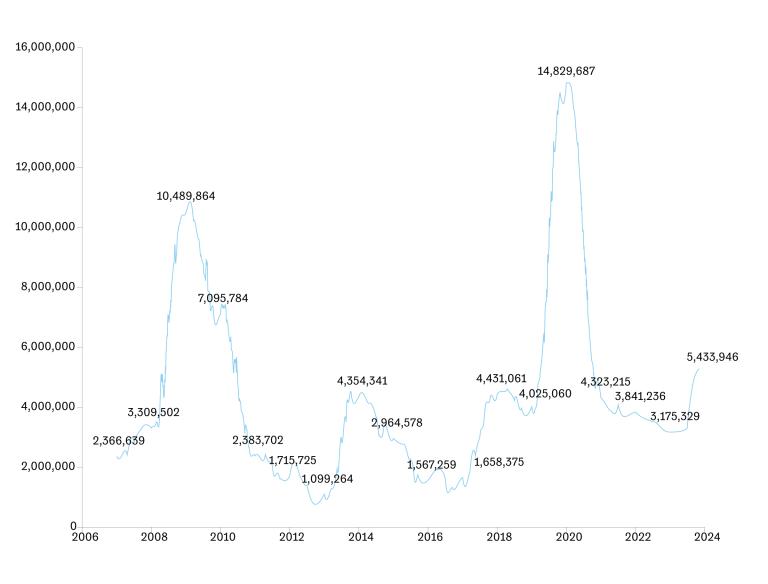
The EU remains the strongest institutional partner of the UN system in Albania (Figure 5), while numerous other bilateral donors have supported the UN interventions with a total of $63 million. The UN in Albania raised in addition $10.4 million of the UN’s core, pooled and thematic funds and $2.7 million from global vertical funds such as the Adaptation Fund, Global Climate Fund, Global Environment Facility and the Peacebuilding Fund.
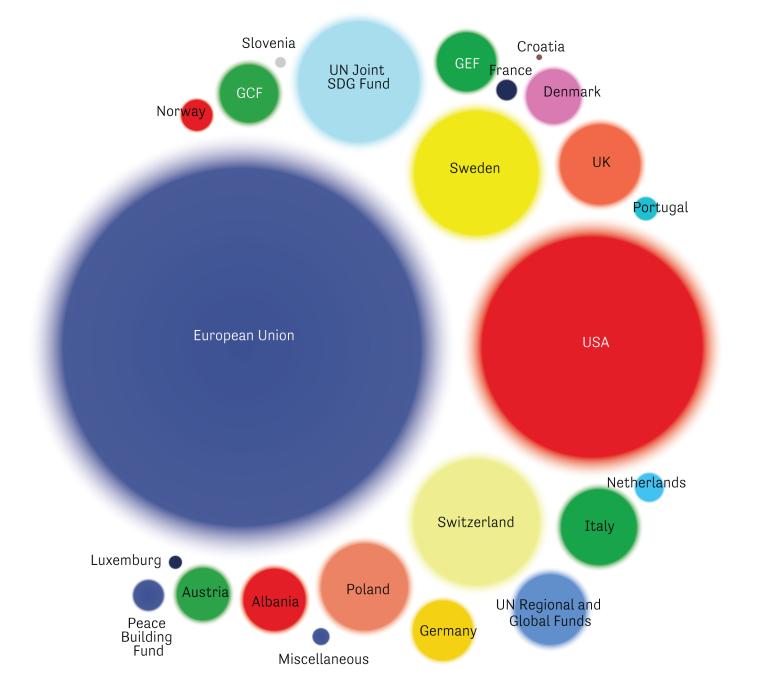
Three years into the implementation of UNSDCF, the UNCT has significantly outperformed initial resource mobilization estimates. Of the projected $282 million budget (funding gap of $117 million), $15.6 million in core resources have been secured (71% of the total estimated for 2022–2026) leaving a $6.4 million gap for the remaining period. Non-core resources reached $232 million, nearly doubling the estimated $134 million, with notable increases under all four outcomes, particularly for Outcome 3: Governance and Gender-Responsive Governance, which saw three- to four-fold growth. The progress reported above is attributed largely to increased contributions from key donors, including the EU, Sweden, Switzerland, UK, Italy, and the USA. The last of these was not anticipated initially but has emerged as a key funder, especially under Outcome 3. With total, secured funding exceeding estimates by $92 million, the funding gap has been reduced to $26 million, positioning the UNCT to focus its resource mobilization efforts to closing the remaining shortfall over the next two years.

